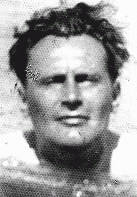You searched for: case
<< Previous | Displaying results 191-200 of 305 for "case" | Next >>
-
Frank Liebermann
ArticleExplore Frank Liebermann’s biography and learn about his experiences of antisemitism in his home town in Germany before World War II.
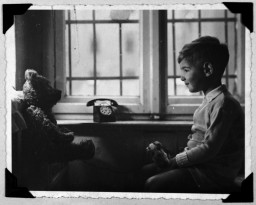
-
Mittelbau Main Camp: In Depth
ArticleLearn about conditions and forced labor in Dora-Mittelbau, the center of an extensive network of forced-labor camps for the production of V-2 missiles and other weapons.
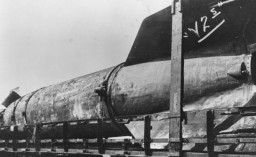
-
Robert Ritter
ArticleRobert Ritter was a German doctor whose work helped drive the development of the Nazi regime’s anti-Romani policies of persecution and genocide.
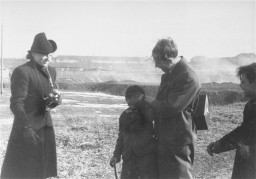
-
Sophie Turner-Zaretsky describes moving to London after liberation and discovering her Jewish heritage
Oral HistorySophie was born Selma Schwarzwald to parents Daniel and Laura in the industrial city of Lvov, two years before Germany invaded Poland. Daniel was a successful businessman who exported timber and Laura had studied economics. The Germans occupied Lvov in 1941. After her father's disappearance on her fifth birthday in 1941, Sophie and her mother procured false names and papers and moved to a small town called Busko-Zdroj. They became practicing Catholics to hide their identities. Sophie gradually forgot that…
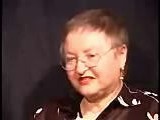
-
John Dolibois describes interrogating captured Nazi officials
Oral HistoryJohn Dolibois immigrated to the United States in 1931 at the age of 13. After graduating from college, Dolibois joined the 16th Armored Division of the US Army. Due to his German language skills, he became involved in military intelligence. He returned to Europe in this capacity toward the end of World War II. Dolibois interrogated German prisoners of war, including leading Nazis, in preparation for the postwar trials of war criminals. He was later appointed US ambassador to Luxembourg, his birthplace.
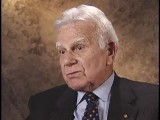
-
Leah Hammerstein Silverstein describes the aftermath of the Holocaust and the search for survivors
Oral HistoryLeah grew up in Praga, a suburb of Warsaw, Poland. She was active in the Ha-Shomer ha-Tsa'ir Zionist youth movement. Germany invaded Poland in September 1939. Jews were forced to live in the Warsaw ghetto, which the Germans sealed off in November 1940. In the ghetto, Leah lived with a group of Ha-Shomer ha-Tsa'ir members. In September 1941, she and other members of the youth group escaped from the ghetto to a Ha-Shomer ha-Tsa'ir farm in Zarki, near Czestochowa, Poland. In May 1942, Leah became a courier…
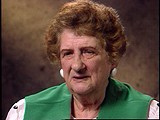
-
The German Military and the Holocaust
ArticleThe German military played a vital role in the consolidation of Nazi power and persecution and mass murder of Jews and other groups. Learn more
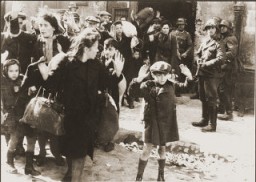
-
International Military Tribunal at Nuremberg
ArticleThe International Military Tribunal (IMT) opened in Nuremberg within months of Germany’s surrender. Learn about the judges, defendants, charges, and legacies.
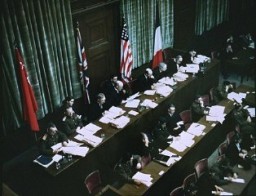
-
Welwel Kisielnicki
ID CardWelwel lived with his wife, Feiga, and their three children in the small, predominantly Jewish town of Kaluszyn, which was 35 miles east of Warsaw. The Kisielnickis were religious and spoke Yiddish in their home. Welwel was a merchant and often traveled, by horse and wagon, to Warsaw on business. 1933-39: The Kisielnicki family's hopes that the war wouldn't reach Kaluszyn have been shattered. Last week, a German plane flew over their town and dropped a bomb on people waiting in line outside a bakery.…
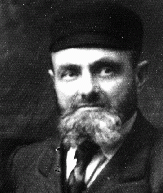
-
Vladan Popovic
ID CardVladan was the oldest of five children born to well-to-do Serbian Orthodox parents in the village of Gnjilane in the Serbian part of Yugoslavia. Vladan went to Montpelier, France, where he earned a law degree from the university. When Vladan returned to Yugoslavia, he worked as an attorney in Belgrade. He married and had one daughter. 1933-39: Vladan's wife died in 1933, and his 4-year-old daughter went to live with her maternal great-aunt. Meanwhile, Vladan had expanded his law practice and was…
